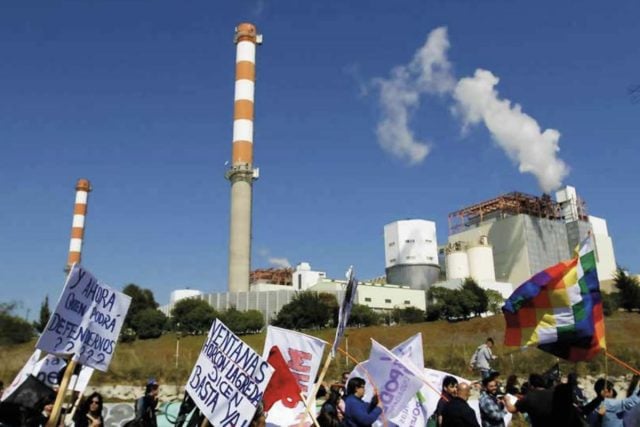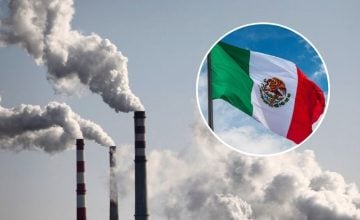Original article: COP30: Representantes chilenos advierten que descarbonización avanza en el país sin reparar daños sociales y ambientales
As COP30 progresses with global calls to accelerate climate action and ensure just transitions, Chilean representatives raised concerns from Belém that the country faces a critical and unavoidable debt: the inadequate social and environmental remediation in areas affected by decades of fossil fuel industry.
During a panel discussion at the Colombian pavilion entitled «From Commitments to Action: Monitoring Just Transition and Phasing Out Fossil Fuels in Latin America,» Gonzalo Melej, coordinator of the Just Energy Transition and Decarbonization Program at Chile Sustentable, emphasized that despite the advanced closure of fossil-fuel power plants, «the transition does not address the historical impacts left by the fossil fuel industry, perpetuating structural inequalities.»
Melej pointed out that while Chile has expedited the integration of renewable energy and shut down 11 coal power plants, «there is no real process for environmental or social remediation, persistent governance failures, and a complete lack of territorial planning, threatening to exacerbate the human and ecological costs of decarbonization.»
The panel brought together Caio Vieira (Talanoa Institute, Brazil) and Giovanni Pabón (Transforma, Colombia), moderated by Diana Barba, amidst COP30’s focus on climate financing and the obligation for countries to demonstrate verifiable progress in a just transition.
In this context, the platform «Energy Progress in Latin America» was presented, offering a regional tool to monitor countries’ alignment with the Paris Agreement, providing data on renewables, energy efficiency, and fossil subsidies. Panelists noted that such systems are crucial for assessing whether the transition occurs with justice and equity criteria.
Amid the debate, Melej highlighted the recent signing of Chile’s Declaration on Climate Change Information Integrity, an initiative introduced at COP30. “It is a significant step in a context where misinformation is rising and pressures to roll back environmental regulations are intensifying,” he stated.
The Chile Sustentable Foundation noted that they have repeatedly documented the gaps in Chile’s energy transition and the accumulated damages in sacrifice zones.
Their studies include “Health Damage Associated with Exposure to Coal-Fired Power Plants in Northern Chile (2006-2023)”; “Unjust Energy Transition in Tocopilla: Challenges for Implementing a Socioecological Just Transition”; and “Coal Phase-Out by 2030: Progress and Outstanding Tasks in Chile’s Decarbonization Timeline,” among others.
“Without a clear socio-environmental remediation plan, Chile’s energy transition risks deepening inequality and leaving the most affected territories behind,” warned representatives from Chile Sustentable.

Continue reading about this topic:
El Ciudadano





